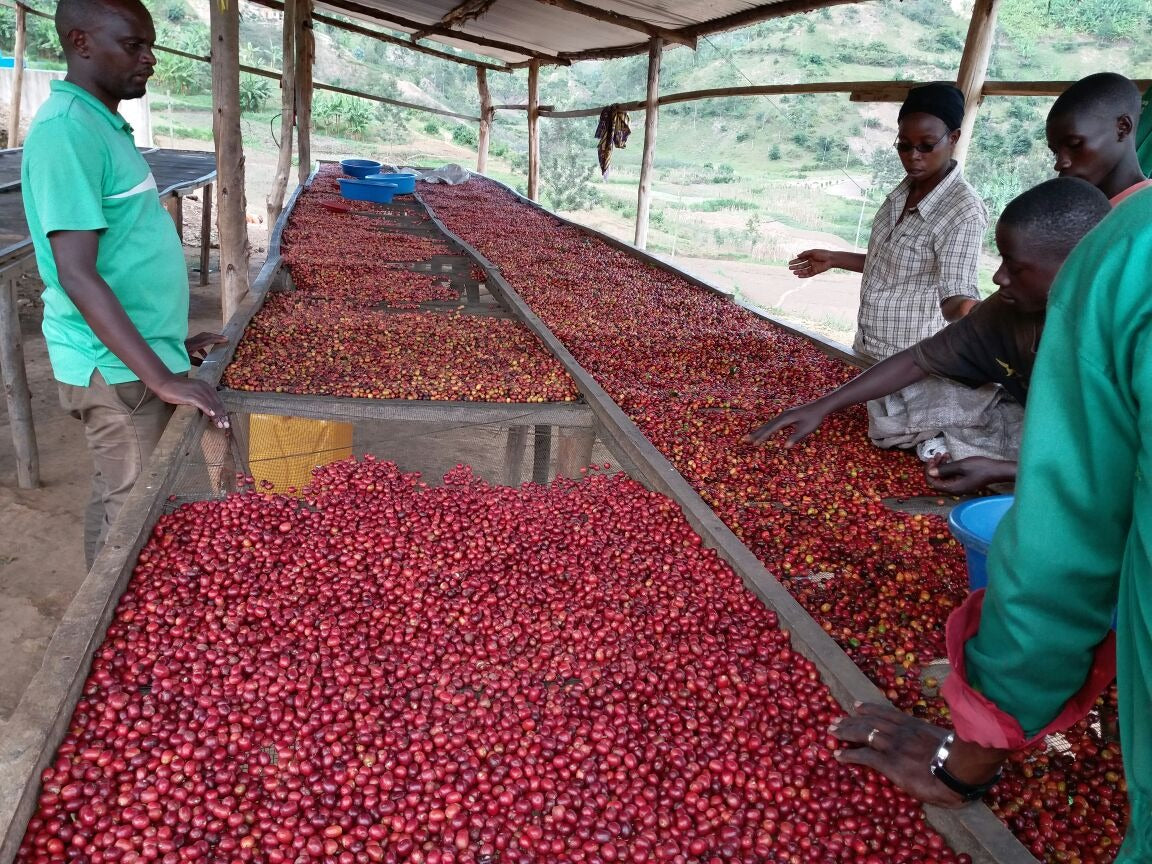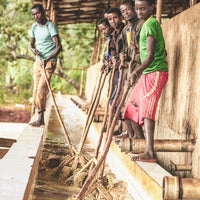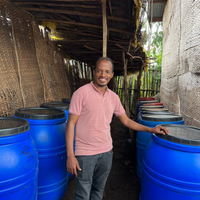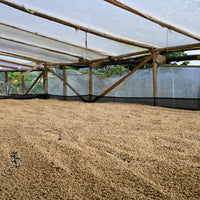Origin: Burundi
Region: Gahahe, Kayanza
Washing Station: Gahehe
Altitude: 1800 meters above sea level
Variety: Red Bourbon
Process: Natural
Tasting Notes: Rich and full bodied with notes of milk choc, rum/raisin.
Gahahe washing station is located in Gahahe, Kayanza Commune in Kayanza province. The washing station lies at 1,805 meters above sea level. The washing station is equipped with 10 fermentation tanks, 4 cherry selection tables, 2 soaking tanks and a drying field with 180 drying tables, and 18 pre-drying tables and can process up to 750 metric tons of cherry per season.
The washing station participates in a number of farmer outreach and support projects including a livestock rearing project and a range of Farmer Hub projects centred on strengthening cooperatives and improving yields.
Many trees in Burundi are Red Bourbon. Because of the increasingly small size of coffee plantings, aging rootstock is a very big issue in Burundi. Many farmers have trees that are over 50 years old, but with small plots to farm, it is difficult to justify taking trees entirely out of production for the 3 to 4 years it will take new plantings to begin to yield. In order to encourage farmers to renovate their plantings, Bugestal purchases seeds from the Institut des Sciences Agronomiques du Burundi (ISABU), establishes nurseries and sells the seedlings to farmers at or below cost. At the washing station, farmers can also get organic fertilizer made from composted coffee pulp.
Despite the ubiquity of coffee growing in Burundi, each smallholder produces a relatively small harvest. The average smallholder has approximately 250 trees, normally in their backyards. Each tree yields an average of 1.5 kilos of cherry so the average producer sells about 200 to 300 kilos of cherry annually.
During the harvest season, all coffee is selectively hand-picked. Most families only have 200 to 250 trees, and harvesting is done almost entirely by the family.
Quality assurance begins as soon as farmers deliver their cherry. All cherry is floated in small buckets as a first step to check its quality. After floating, the higher quality cherry is sorted again by hand to remove all damaged, underripe and overripe cherries.
Cherry is laid in thin layers on raised tables where it is turned frequently to enable even drying. Cherry is covered when its rains, during the hottest part of the day and overnight.
Burundi has long been overlooked in comparison to its neighbouring East African specialty coffee producing powerhouses. However, Burundi season, for us, is one of the highlights of the annual coffee calendar. The country’s coffee is produced almost entirely by smallholder farmers, and much of this small-scale production is of exceptional quality. With its super sweet, clean and often floral coffees, Burundi, every year, is increasingly is putting itself on the specialty coffee map.
Coffee is of paramount importance to families and the country at large. Considering this, improving and expanding coffee infrastructure is not just a way to improve incomes, it is a way to revolutionize the earning potential of an entire nation.
Building washing stations and expanding agricultural extension work can be great ways to improve coffee quality. Washing stations are pivotal in improving cup profile standards and the global reputation of Burundian coffee.
Both state-owned and private actors drive Burundi’s coffee industry and play key roles as washing station management companies and exporters. State-owned companies are called Sogestals, short for “Sociétés de Gestions des Stations de Lavage” (Washing station management companies). Privately-owned companies can operate under a variety of different names.
Sucafina’s history in Burundi goes back to 2007 when Bucafe/Sucafina Burundi was established in Bujumbura. Through Bucafe, we work with several privately-owned washing station management companies and exporters. Our work bridges the entire supply chain, allowing us to be vertically integrated. Our supply chain is solid, reliable and transparent. Due to this, we are more efficient, able to supply better value and positioned to offer both producers and consumers of Burundian coffee a diversity of expertise.







